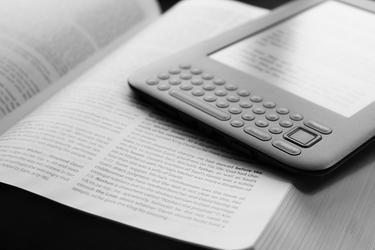I am leaving TWITTER SOON. Please continue to follow me here.
Vertical News: Pros and Cons of E-readers
While E-readers and tablets offer a convenient alternative to carrying around stacks of books… a new study finds that for certain aspects of comprehension, you may be better off with a paper book.

Source: Amanda Stiver
The study gave fifty participants a short story of twenty-eight pages with half of the group reading a paperback book and half reading on a digital reading device. After reading, the groups were given comprehension tests. Researchers believe that the “tactile feedback” of a paper book, being able to see how far along you are and how much you have left to read by the feel and weight of the book and pages, provides an important part of the reading comprehension process.
Scientists working on the study were eager to pursue more inquiries into the differences between various technologies and their previous counterparts to see what combination might be best for studying or teaching various topics, such as reading fiction vs. studying a topic in depth (Alison Flood, “Readers Absorb Less on Kindles Than on Paper, Study Finds,” The Guardian at the guardian.com, August 19, 2014).
Know your needs…
While technology may appear, based on marketing, to be a seamless progression into the future, the reality is that various stages of technology co-exist and are useful for various purposes. Choosing an E-reader for some light reading or for travel may be a great option. However, if you want to get the most focused study on a topic and be clear about the order of events, such as in a book of the Bible, it might be more effective to use a paper book to re-enforce that aspect of your study rather than a tablet or smartphone edition of the Bible.Learning to use technology, old or new, responsibly and effectively is a key aspect of character development as we strive to make the most of our relationship with God and his word, the Bible.



No comments:
Post a Comment